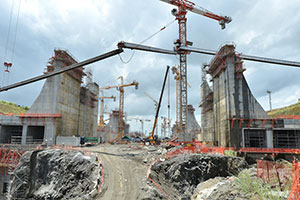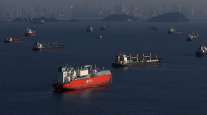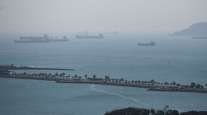Key Democrat Supports Private Industry Role Ahead of Panama Canal Expansion

A Senior Democrat on a House panel examining the role private industry plays in transportation called on colleagues on July 10 to facilitate access to private funds for regional ports ahead of next year’s expansion of the Panama Canal.
Del. Eleanor Holmes Norton (D-D.C.), the ranking member of the Highways and Transit Subcommittee, said absent a significant boost from the federal government, states would seek capital and expertise from businesses in order to prop up large-scale port projects.
The Panama Canal’s expansion in 2015 is meant to allow larger ships access to U.S. waters. But a problem for many ports is that they lack the capabilities to accommodate large vessels known as supertankers. Most port managers see the Panama Canal expansion project as reason to grow their operations. That includes investing in expansion projects and adding larger cranes able to reach across the broader width of those bigger container vessels.
“When the federal government does not step up, and it’s lots of business out there, the states themselves will come up with money and the private sector knows how to compete and how to get into the business of helping to deepen those ports so that their port would be the chosen port,” Norton said, during a House Transportation and Infrastructure Committee's Panel on Public-Private Partnerships on July 10.
While Norton and other lawmakers have expressed support for what are known as public-private partnerships (P3s), there are critics.
Officials at the July 10 hearing, such as John Crowley, Executive Director, National Association of Waterfront Employers, argued that a dilemma in using P3s is the misconception that they are a quick-fix solution to any financing problem.
“It’s a tool that exists in many circumstances potentially, but the private sector’s got to be given an opportunity to work with it and figure out its unique solution that it can bring something of value and achieve an upside as well as risk the downside of investing otherwise capital,” Crowley said.
P3 arrangements are made up of investors putting up capital for large projects that pay them back over time in dedicated debt payments or tolls. Transportation officials in Texas, Virginia, and Florida, have enacted legislation facilitating the use of P3s.



